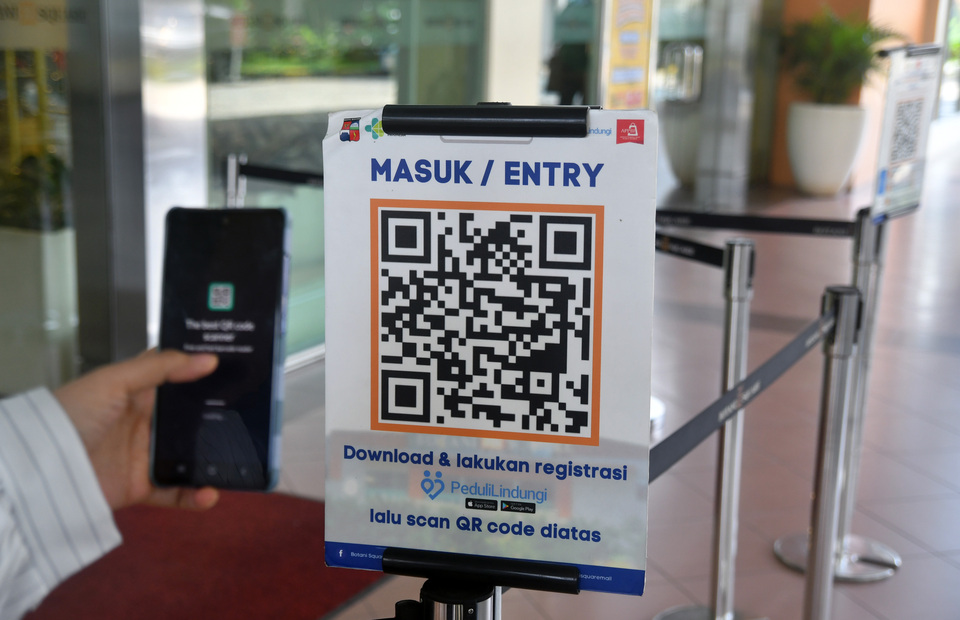IDNAround – The government is planning to upgrade the Covid-19 tracing app PeduliLindungi into a more comprehensive citizen health app that also stores the patient’s medical record and is linked to all healthcare facilities across the country.
Over the past years, Indonesia has been relying on PeduliLindungi for contact tracing and vaccination verification. Scanning barcodes with the PeduliLindungi before entering public premises has become a daily routine for most Indonesians.
Health Minister Budi Gunadi Sadikin recently said that PeduliLindungi “is one of the world’s largest health apps” after amassing more than 104 million downloads. The ministry data showed that PeduliLindungi had helped prevent Covid-19 transmission from more than 626,000 people. In early 2022, the app could record more than 34 million check-ins in a week.
But Indonesia has recently lifted all of its Covid-19 curbs as the pandemic came under control. The government also now intends to transform PeduliLindungi into a citizen health app that goes beyond Covid-19 tracing.
According to Budi, the citizen health app is part of Indonesia’s master plan of integrating all healthcare data into a single platform called SATUSEHAT, which literally translates as “One Health”.
“All healthcare facilities must be connected to the SATUSEHAT system by end-2023. If a person takes a test in a lab, they will have the results sent to the citizen health app, which we will launch. So this is an enhanced version of PeduliLindungi that will become part of our SATUSEHAT system,” Budi told a virtual press briefing on Thursday.
“[The citizen health app] will collect CT scan results, medicine purchases, etc. The data will belong to each individual patient. All this time, their medical record has been stored in their respective healthcare facilities,” Budi said.
Users will be able to link the data from third-party informatics apps such as Samsung Health and Apple Watch. Doctors can access the data with the patient’s consent.
The data integration will also greatly improve medical diagnosis. For instance, doctors can easily screen a patient for cancer risks by reviewing the historical data of the parents, according to Budi.
Indonesia is home to at least 3,000 hospitals and over 11,000 clinics.
The country has more than 10,000 community health centers, over 30,000 pharmacies, and beyond 5,000 individual practices, as well as 1,400 labs. The government intends to integrate all these healthcare facilities into the SATUSEHAT platform by the end of this year.
Data showed 2,893 community health centers and 370 hospitals in the highly populous Java-Bali are ready to be integrated —at least in a sandbox phase— into the SATUSEHAT platform. About 76 of those hospitals are in Jakarta.
“The pandemic has taught us the importance of digitalization for the health sector. […] An electronic-based healthcare service is not only faster but more transparent and thus lessening the chance of corruption,” the minister told reporters.
Related News: Supreme Court Upholds Death Sentence for Man Convicted of Raping 13 Students

